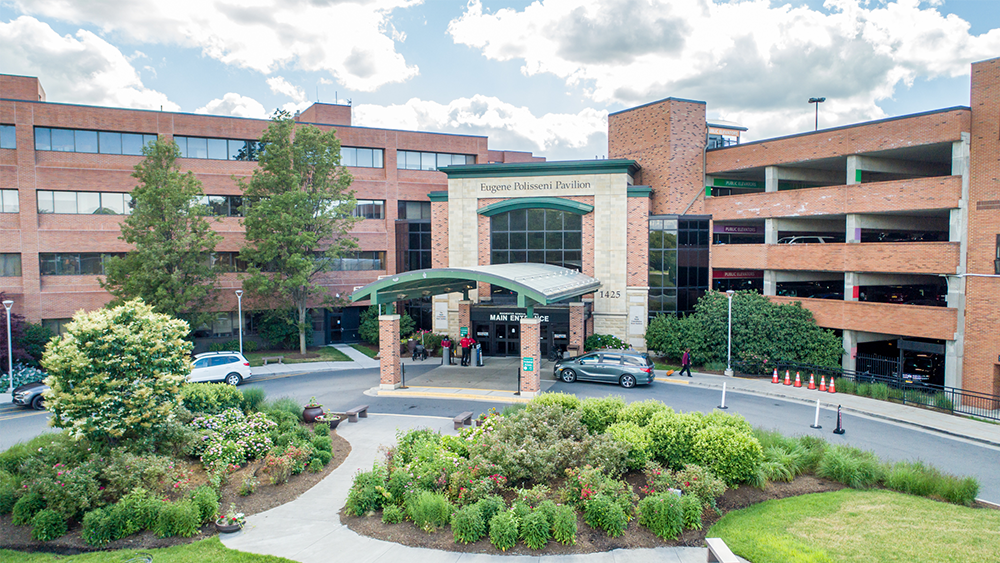Cutting-Edge Cardiac Care
The cardiology program at the Sands-Constellation Heart Institute is one of the largest and most comprehensive cardiology programs in New York State. Our team offers the clinical and support resources you need for a lifetime of good cardiac health, and we stay at the forefront of research and innovation in the field of heart health. We work closely with referring physicians and other specialists?including our own nationally recognized heart surgeons ?to ensure you receive safe, effective, and compassionate cardiac care.
Diagnosing Heart Disease
Our heart team diagnoses and treats heart rhythm disorders, heart failure, coronary disease, valve disease, and complex, chronic conditions. We also help address cholesterol, diabetes, and high blood pressure. Our cardiologists use the latest in diagnostic technology to evaluate and diagnose heart disorders and offer a full range of non-invasive cardiology testing services.
Your First Visit
No two cardiology treatment strategies are the same. During your first visit to the Sands-Constellation Heart Institute, our heart care team will help you develop a personalized strategy that best fits your lifestyle. We will thoroughly:
- Examine your symptoms
- Ask for a detailed history of your symptoms
- Learn about your risk factors that may contribute to your medical condition
- Discuss any family history of illness
Echocardiograms and Stress Tests
Echocardiograms (echos), stress tests, and dobutamine echos are non-invasive techniques that safely and quickly assess your risk for heart disease. There is no pain associated with these testing procedures, and they help cardiologists learn valuable information about your heart?s rhythm and blood flow.
Benefits of an echocardiogram
- Checks problems with the valves or chambers of your heart
- Evaluates if heart problems are the cause of symptoms such as shortness of breath or chest pain
- Detects congenital heart defects
Learn More About Stress Testing and Echocardiograms
Heart Monitors and EKGs
Heart monitoring and EKGs (electrocardiograms) evaluate how your heart is functioning and how well it?s pumping blood through your body.
Types of EKGs include:
- EKG - records the electrical signal from your heart by using electrodes placed on your chest.
- Holter - a device that records your heartbeat for either 24 or 48 hours. Patches are attached to your chest while you hold a small box on a belt or shoulder strap.
- Event Monitor - a small device attached to the wall of your chest by two patches that can be changed regularly. The device is usually worn for one to four weeks. When you experience a symptom, you activate the monitor and then send us your EKG over the phone.
- Ambulatory Blood Pressure Monitors ? a combination of a clinical assessment questionnaire and exam, a brief ultrasound to assess the thickness of the heart, and a blood pressure monitor worn for 24 hours.
- Enhanced External Counter Pulsation - a non-invasive treatment that has been clinically proven to significantly relieve symptoms for up to three years in 80% of patients. Rochester Regional Health is the exclusive provider of enhanced external counterpulsation in the Rochester area.
Additional Cardiac Testing Options
The Sands-Constellation Heart Institute also provides the following cardiac testing options:
- Exercise Tolerance Tests (ETT) - an Electrocardiogram (ECG) that is recorded while you exercise. The ETT will assess how well your heart works when you?re active and your heart is working harder.
- Nuclear Imaging - a study of your heart done when you are running on a treadmill or education medication to make your heart work harder.
- Pacemaker/Device Management - patients with devices are scheduled for telephone checks as well as in-office checks, which are necessary to ensure that your device is working properly.
- MUGA Scan - a multigated acquisition (MUGA) scan takes video images of the lower chambers of the heart.
Heart Conditions We Treat
Our skilled cardiologists treat all types of common and rare heart problems and disorders.
Aortic Aneurysms - An aortic aneurysm is an abnormal bulge that forms in the walls of the aorta (your largest blood vessel) when the walls of the aorta weaken. The two types of aortic aneurysms are abdominal and thoracic aneurysms. Signs of an aortic aneurysm include chest or back pain, difficulty breathing, coughing, and shortness of breath.
Arrhythmia (heart palpitations) - An arrhythmia occurs when the heartbeat beats irregularly, either beating too fast, too slowly, or at an irregular rate. There are often no signs or symptoms of an irregular heartbeat, but you may feel faint, dizzy or have difficulty breathing. An electrocardiogram (EKG or ECG) is the most common test used to diagnose an arrhythmia.
Coronary Artery Disease – The coronary arteries are the blood vessels that carry blood to your heart. Coronary artery disease is the narrowing or the blockage of these arteries. It is often caused by atherosclerosis, which is the build-up of cholesterol or plaque (also called fatty deposits) inside the arteries. Some people with coronary artery disease have no symptoms, and others may experience chest pain, nausea or indigestion, lightheadedness, sweating, and an increased heart rate.
Heart Failure – Heart failure is when your heart isn’t pumping enough blood to meet the body’s need for blood and oxygen. Congestive heart failure is a type of heart failure that requires timely medical attention.
Heart Valve Disorders – If you’re suffering from a heart valve disorder, one of the four valves in your heart isn’t working properly. The valves keep blood flowing in the correct direction, and disorders can cause blood flow to be disrupted. Symptoms include an abnormal sound (heart murmur), chest pain, dizziness, fainting, fatigue, and swelling of your ankles and feet.
High Blood Pressure (hypertension) – Your blood pressure is determined by the amount of blood your heart pumps and the amount of resistance to blood flow in your arteries. The narrower your arteries and the more blood your heart pumps, the higher your blood pressure will be. Hypertension can occur for many years without obvious symptoms and increases your risk of both heart attack and stroke.
Lipid Disorders (high cholesterol) – The fats that circulate throughout your bloodstream are called lipids, and include low-density lipoproteins (LDL), high-density lipoproteins (HDL), and triglycerides. LDL, or bad cholesterol, contributes to plaque buildup in your arteries and can increase your risk of heart attack and stroke. HDL, or good cholesterol, helps remove LDL from the blood and effectively prevents the formation of plaque and fatty buildup.
Vascular Diseases – When your heart beats, it pumps blood through your blood vessels or tubes that carry blood to every inch of your body and consist of arteries (carry blood away from the heart) and veins (carry blood back to the heart). Conditions include peripheral artery disease, carotid artery disease, blood clots, aortic aneurysms, and venous diseases.
Same-Day Heart Care Appointments for Existing Patients
In order to provide our patients with quick access to care, we now offer existing cardiology patients same-day appointments with our experienced Advanced Practice Providers (APPs). Appointments are available Monday through Friday for non-emergent symptoms like palpitations, non-active chest pain, fatigue, edema, shortness of breath, and hypertension. Call (585) 442-5320 or message in MyCare to request an appointment.


